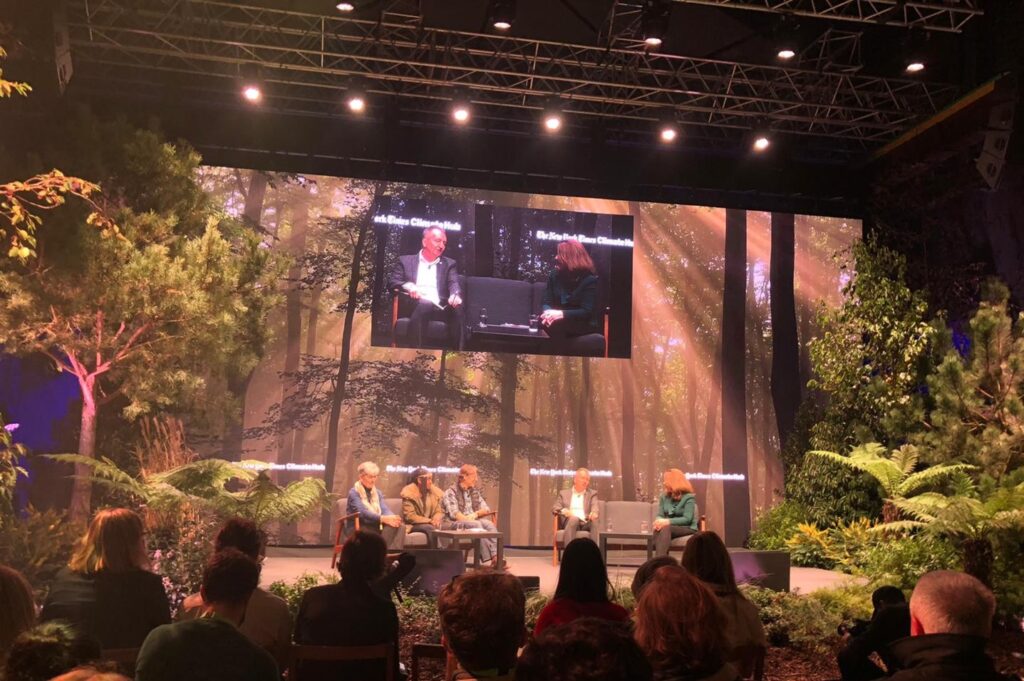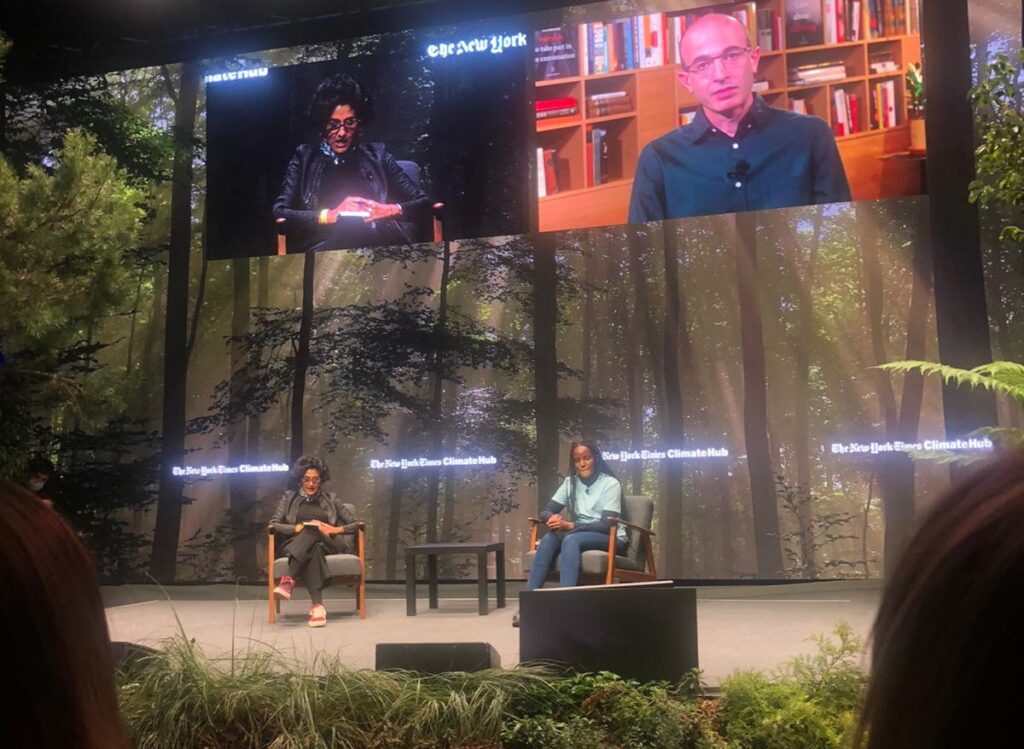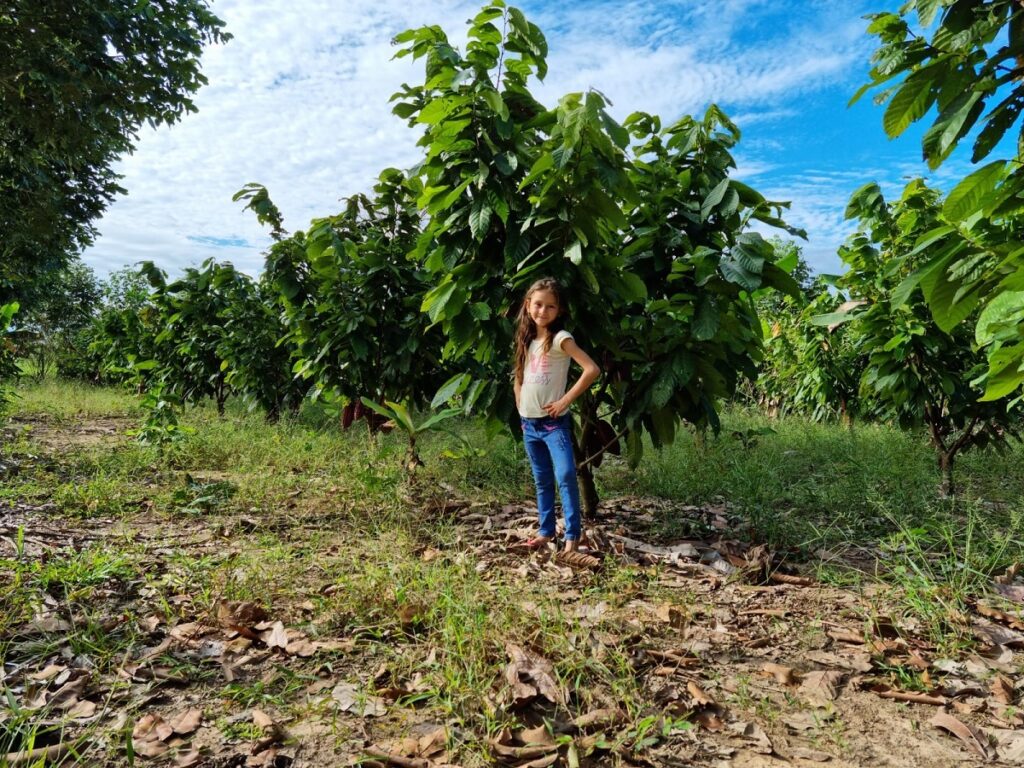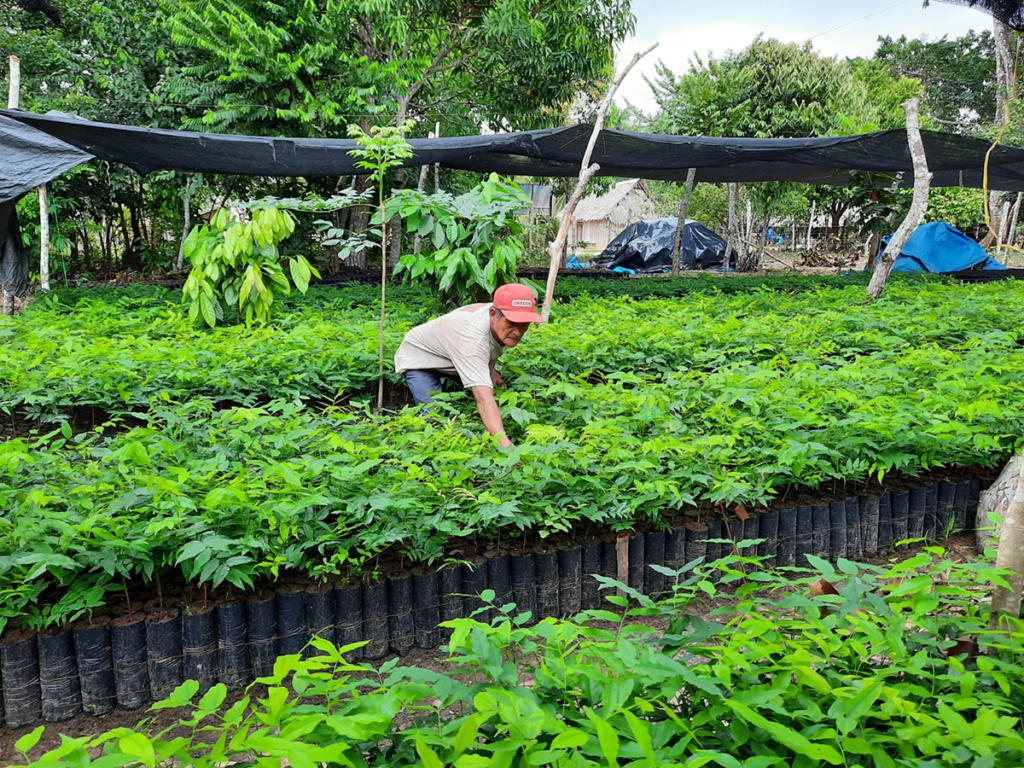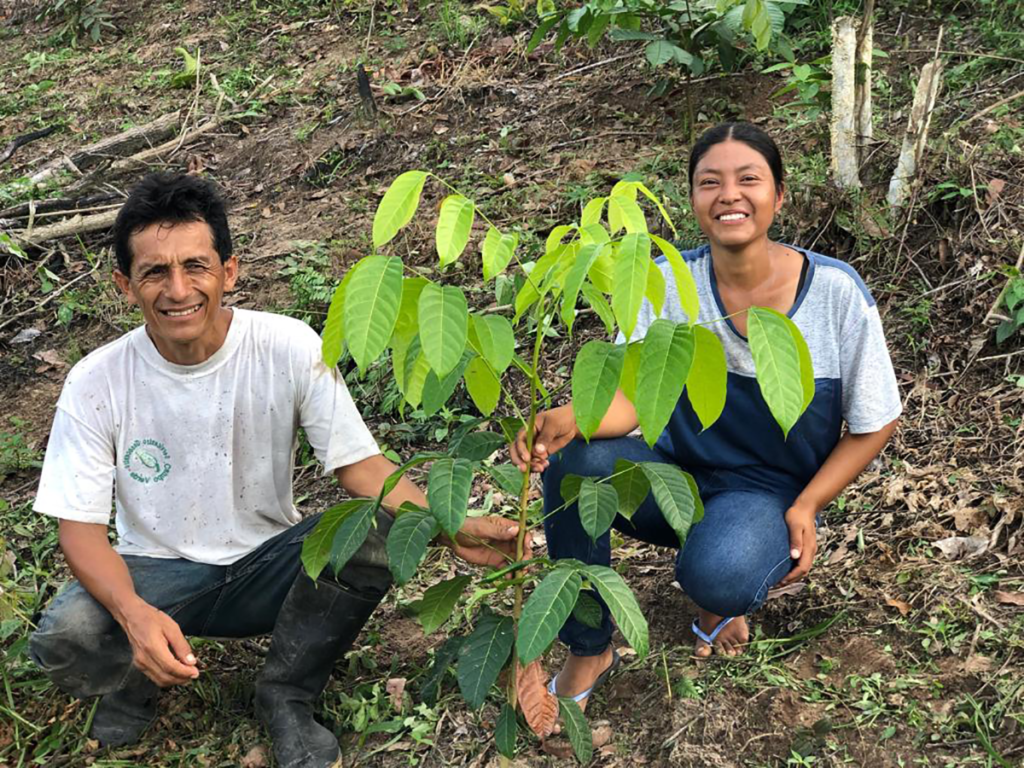Plant Your Future urges support for grassroots, community-lead action for reforestation, in the wake of COP26
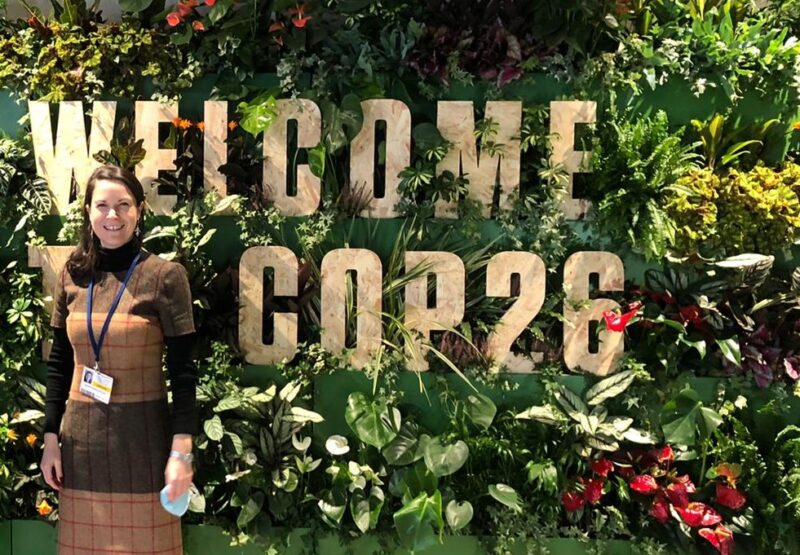
With the 26th UN Climate Change Conference of the Parties (COP26) drawing to a close in Glasgow last week, you may be left wondering what you can do to help overcome the global challenges that we face as a species.
Progress was made at COP26, but it wasn’t enough, and it didn’t reflect the urgency of the climate crisis.
At Plant Your Future, we urge you to support grassroots, community-led action to protect and restore the Amazon rainforest, and in turn halt the rising temperatures that threaten us all.
The summit, which ran for two weeks from 31st October to 12th November 2021, saw over 100 world leaders come together to accelerate action towards the goals of the Paris Agreement and the UN Framework Convention on Climate Change.
As a specialist in Natural Climate Solutions, our founder and chairman Jenny Henman, attended COP26 to follow the negotiations and speak at an event sharing her expertise in carbon finance.
Zero deforestation – what the agreement really means
On the second day of the COP the Glasgow Leader’s declaration on Forests and Land Use the second was signed. The commitment to halt and reverse deforestation by 2030, made by more than 110 world leaders, was the most relevant agreement to come out of COP26 in terms of the work we do at Plant Your Future.
In the plan, global leaders affirmed the role of forests in balancing greenhouse gas emissions and removals, adapting to the impacts of climate change, and maintaining healthy ecosystem services. They called for ‘transformative’ action through shared efforts to conserve forests, promote sustainable trade and development policies, reduce human vulnerabilities, redesign agricultural policies, and increase financial incentives in the name of a ‘sustainable land use transition’.
Countries representing over 85% of the world’s forest signed onto the agreement – including Brazil, Indonesia and the Democratic Republic of Congo, which house the largest tracts of tropical forests, as well as the U.S. and China, the world’s two largest market economies. Our chairman, Jenny, said:
“It was fantastic to see the important role that nature, forests and agriculture play in tackling climate change take on a much higher profile than ever before at COP this year, not only in the main negotiations but also in official and fringe events. In terms of the Glasgow declaration on forests – we have seen bold forest pledges before and deforestation rates are still trending in the wrong direction, so I hope we’ll see greater commitment to achieving the goals this time around, including a way for funds to actually reach indigenous and local communities who are the custodians on-the-ground ”
Although this commitment is promising and much-needed, we need to speed-up the distribution of funds to local communities so that they can start taking action now. Unfortunately we cannot wait for money to trickle down from donor governments as we need immediate action, which is why we have to rely on the generosity and donating power of the public to support this work now before it is too late.
After many years of negotiations it was also heartening to see agreement on Article 6, making new provisions for carbon offsetting and creating the rulebook for cross-border carbon trading. (Here is a useful summary if you fancy a deep dive.) This is relevant for Plant your Future as carbon finance can support our beneficiaries – through placing a value and recognising the service rural Amazonian landowners are playing by planting and storing carbon dioxide in the trees. The financial payments for the carbon credits can help ensure the sustainability of their agroforestry system and provide them the money they need to maintain the trees.
Youth activism – speaking truth to power
From her time at COP26, what really made Jenny hopeful about the future was not the pledges made by politicians, but instead the strength and commitment of young people across the world who are taking direct action. She said:
“One of the most compelling elements of being at the COP for me was listening to African activists speaking eloquently and with passion and conviction, including Kenyan activist Elizabeth Wathuti.
Wathuti’s comment on the overall outcome highlights the gap between what is needed and what was agreed. She said:
“Please can we have a reality check? Mentions of ‘coal’ and ‘fossil fuel subsidies’ in a decision text are not a win. Calling for the ‘phase down’ of coal, rather than a phase out of fossil fuels, is not a win…The fight doesn’t end here because there is still everything to fight for. We are fighting for our lives and a safe future and we know we can win this together.”
Jenny was also inspired – and shocked – by the screening and panel discussion of the eye-opening documentary Great Green Wall. She said:
“It’s really worth a watch. After the event, I was lucky to chat with the inspiring and deeply talented Malinese singer Inna Modja who is in the film. She takes us on an amazing journey across the Sahel. The biggest take home was that climate change is happening already. Her description of climate impacts which are already destroying communities in Africa really highlighted the urgency of taking strong action now, to avoid disproportionate and devastating impacts on those in the poorest regions of the world who are most vulnerable to and least responsible for climate change.”
Climate action with rainforest communities
Here at Plant Your Future we are working with 15 rural communities in the northern Peruvian Amazon, enabling them to take direct action to restore land which is critical in the fight against climate breakdown. They’re taking up a new and progressive way of farming that works with nature and not against it. They’re planting thousands of native rainforest trees on their land, restoring the soil and growing a variety of fruits and crops.
It takes great courage and commitment for families to adopt this new and sustainable way of farming, so our local team of expert foresters provide them with technical support every step of the way. Rainforest communities need our support now – as they too are already feeling the impacts of climate change, from heavier rains and flooding in the wet season to worsening drought and intense temperatures in the dry season. Restoring tree cover helps protect them from the worst of these impacts.
Unsustainable farming is one of the biggest drivers of deforestation in the Peruvian Amazon yet there is extremely limited support for rural, low-income communities to farm their land in any other way than through destructive slash-and-burn and unsustainable cattle ranching. These farming communities own vast areas of the Amazon, yet earn very little from their land. They want to restore it but struggle to find the financial and technical support to do so.
Without supporting these rainforest communities, it is not possible to halt and reverse deforestation, which world leaders committed to in COP26. Despite the promise of this agreement, here at Plant Your Future we are doubtful that funds will actually reach the local communities who are the custodians of the Amazon.
Our upcoming Big Give Christmas Challenge is a way to fast-track the distribution of funds to rainforest communities to champion their work. For one week only, between 30th November and 7th December 2021, any donation made to Plant Your Future via the Big Give website will be doubled, helping us to meet our goal of raising a massive £30,000 towards restoring the Peruvian Amazon.
The funds raised will be critical in helping us achieve our ambitious goals for 2022, when we plan to work alongside local communities to plant 150,000 native trees by May, restoring 170 of deforested land and signing up more than 100 new families to our programme. For more information on the Big Give Christmas Challenge, what it will help us to achieve and how you can donate, we will publish a blog post on 30th November – the day of the campaign’s launch – so please keep an eye out for how you can make a real and meaningful impact to tackle climate breakdown.
